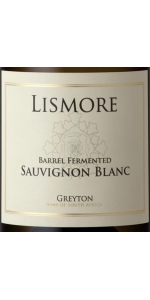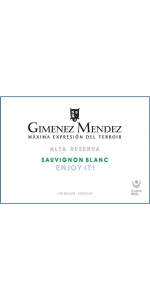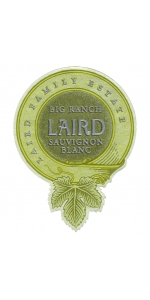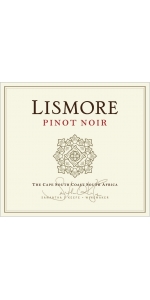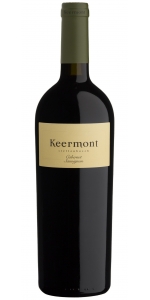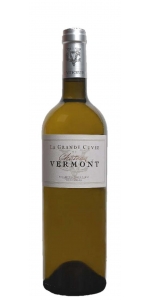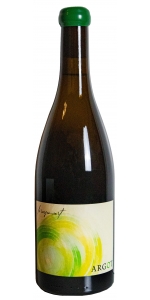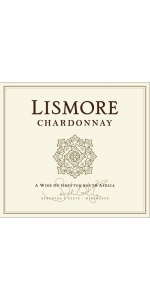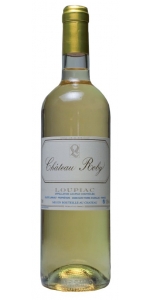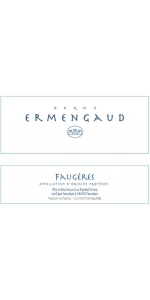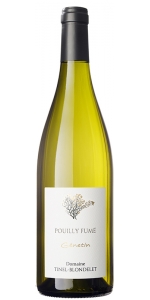Lismore Barrel Fermented Sauvignon Blanc 2020
| Country: | South Africa |
| Region: | Western Cape |
| Winery: | Lismore Estate Vineyards |
| Grape Type: | Sauvignon Blanc |
| Organic: | Yes |
| Vintage: | 2020 |
| Bottle Size: | 750 ml |
Lismore Barrel Fermented Sauvignon Blanc is made from 100 percent Sauvignon Blanc.
As with all Lismore wines, balance is the key. The bracing acidity that is customary in new world Sauvignons has been brought into balance with a carefully chosen pick date and the barrel and egg fermentation and maturation. A full bodied, balanced wine was the goal.
Barrel fermentation and extended lees contact contribute to this full bodied, elegant and well balanced wine. Floral notes of passion flower and fynbos, granadilla, guava, gooseberry and pear on the palate along with an underlying minerality which gives this unique terroir driven wine its signature.
Wine Made in the Soil
The grapes come from 50% Lismore’s Greyton vineyards which are planted on East/Southeast facing slopes at 320 meters in the foothills of the Sonderend Mountain Range. The soils are deep decomposed shale. The other 50% comes from a vineyard in Stanford which overlooks Walker Bay on sandstone soils.
Gimenez Mendez Alta Reserva Sauvignon Blanc is made from 100 percent Sauvignon Blanc.
Gimenez Mendez Sauvignon Blanc shows a very pale hue, almost crystal clear in color. Intense and herbal bouquet in harmony with fruity notes of guava and green apple, mango and maracuja. The wine is full and ample on the palate with a very firm structure. Dry, crisp and lively in the mouth.
Sauvignon blanc grapes are hand harvested very early during some mornings of February. Banches are destemmed and delicately crushed. With a quick press, fresh and very aromatic juice are obtained. Juice is fermented in stainless steel tanks during 15 days at controlled low temperatures, between 14 to 16 °C .Once fermentation is finished lees are kept and stirred for 1 month to get a creamy texture. Then a carefully clarification is necessary. The wine is filtered and stabilized without cold, and finally bottled to keep the freshness. No oak.
Ideal to serve with very spicy seafood, sushi or salads, as well as white meats with sweet-sour sauces, paté. Serve chilled.
Review:
Laird Sauvignon Blanc Napa Valley is made from 100 percent Sauvignon Blanc
Vineyard: 100% Big Ranch Road
Appellation: Oak Knoll District of Napa Valley and Rutherford
Varietal: 100% Sauvignon Blanc
15% of Big Ranch fermented in Neutral Oak barrels + 2% of Smith Ranch fermented in Neutral Oak Barrels.
This lively and prolific varietal thrives in alluvial deposits composed of gravelly sand and gravelly loam, with good water retention and moderate fertility. Our Napa Valley Sauvignon Blanc is crafted in an approachable, fruit-forward style that is typical of the varietal and expressive of its terroir.
Tasting Notes: Translucent gold color leads to notes of juicy ripe pineapple, jasmine, Kaffir lime and Juicy Fruit gum entice the nose. Balanced, yet vibrant body of acidity tantalizes the palate with pineapple, passion fruit and Charentais Melon; a refreshing layer of minerality hits your mid-palate. The elegant, floral finish opens into a complex balance of white peaches, nectarines.
Lismore Pinot Noir is made from 100 percent Pinot Noir
Complex bouquet of crushed rose petals, wild jasmine and fresh French herbs followed by a palate full of cranberry, raspberry and a long savory finish.
The grapes were picked at optimal ripeness. 30% whole bunch fermented in large 5000 liter vats with gentle pump-overs twice a day. The process allowed for a long extraction period which lends to the fruit expression and structure of this wine. The free run wine was drained off and the fermented grapes were then pressed in a traditional wooden basket press. The wine was racked into 225, 300 and 500 liter barrels where malolactic fermentation took place and the wine was aged for 10 months. 35% new French oak was used.
Review:
"The 2018 Pinot Noir comes from Walker Bay and Kaaimansgat and includes 30% whole-bunch fruit, aged for 11 months in 25% new oak. The bouquet sports vivid red cherry and raspberry fruit that is exceptionally well defined and beautifully integrated with the oak. The palate is medium-bodied with supple tannins, well-judged acidity and a slightly fleshy texture. There is just the right amount of salinity here, and the finish is kept on a tight leash, allowing the detail and precision to be fully expressed. A slight sour edge on the finish keeps you coming back for another sip. Excellent and reassuringly classy. - Neal Martin" - Antonio Galloni's Vinous (November 2019), 92 pts
"Walker Bay and Elandskloof are the twin sources of 30% whole bunch-fermented Pinot from Sam O'Keefe. Juicy, floral and charming, it's a graceful, fruit forward style with some clove and tobacco spice and refreshing acidity. The finish is a little firmer than I remember. 2020-24"- Tim Atkin (South Africa 2020 Special Report), 92 pts
Keermont Cabernet Sauvignon grows in Keermont's Cottage Lane Vineyard on the mid-slopes of the Helderberg. This vineyard is situated on the crest of a ridge (320m above sea level) so has aspects ranging from East through North to West. It is very exposed resulting in small vines with low yields. This has allowed to make a relatively fine grained Cabernet, but the clay soils translate to a wine with power, tension and fresh acidity. They blend in a couple of barrels of other varieties to add to the complexity of flavor and tannin structure.
All grapes used in producing the wines are grown on Keermont Vineyards. Most of the vineyard parcels grow on deep red clay rich soil derived from sandstone and granite and are surrounded by indigenous ‘fynbos’ vegetation. The vineyards are planted on steep mid-slopes high up in the valley between the Stellenbosch and Helderberg mountain ranges. Aspects vary from North East through North to West facing between 250 and 400 meters above sea level.
Dark ruby red in color, this is quite a serious vintage with a complex bouquet of ripe red berry fruit, cedarwood, and typical ‘fynbos’ flowers. The palate is full bodied, but gentle. Tannin structure is full and dense and coats the palate while the natural acidity keeps the ripe fruit in check. Savory notes of tomato paste and cloves add character to the bright red strawberry and cassis flavors which linger into a long, tight finish. Drink 2020 – 2035.
Review:
"Something of a crowd pleaser from Alex Starey, this is a comparatively forward cuvée of Cabernet Sauvignon and 10% Cabernet Franc. Supple, ripe and perfumed, it combines fynbos and dried herb aromas, fig and mulberry flavours, supple tannins and plenty of body and alcohol. 2023-29"
- Tim Atkin (South Africa 2023 Report), 91 pts
La Grande Cuvee du Chateau Vermont Blanc is made from 70% Sauvignon Blanc and 20% Semillon and 10% Sauvignon Gris.
Traditional blend of "Grand Vin Blanc de Bordeaux", a beautiful wine vinified and matured in barrels. Fine wine, elegant and well-balanced; dominated by Sauvignon (fruitiness), with vanilla notes coming from the oak aging. This wine has beautiful structure and very long-lasting aromas and flavors, providing great aging potential.
Perfect with dish of fish in sauce, scallops, langoustine, and cheeses.
Review:
Some passion fruit, green apple and green mango on the nose, following through to a pure but creamy palate with chalky acidity and elegant citrus and stone-fruit flavors. Drink now."
Lismore Barrel Fermented Sauvignon Blanc is made from 100 percent Sauvignon Blanc.
As with all Lismore wines, balance is the key. The bracing acidity that is customary in new world Sauvignons has been brought into balance with a carefully chosen pick date and the barrel and egg fermentation and maturation. A full bodied, balanced wine was the goal.
Barrel fermentation and extended lees contact contribute to this full bodied, elegant and well balanced wine. Floral notes of passion flower and fynbos, granadilla, guava, gooseberry and pear on the palate along with an underlying minerality which gives this unique terroir driven wine its signature.
Wine Made in the Soil
The grapes come from 50% Lismore’s Greyton vineyards which are planted on East/Southeast facing slopes at 320 meters in the foothills of the Sonderend Mountain Range. The soils are deep decomposed shale. The other 50% comes from a vineyard in Stanford which overlooks Walker Bay on sandstone soils.
Reviews:
"The 2020 Sauvignon Blanc Barrel Fermented was from donated Stellenbosch, Helderberg, Elgin fruit and a little from Greyton (thus WO Western Cape). This was made in a similar style, oxidatively in barrels, at Almenkerk but obviously has a very different terroir expression than the usual Cape South Coast fruit. The fresh, saline, sea-spray-scented bouquet gradually unfurls with aeration in the glass. The palate is well balanced with a grassy, white asparagus and ginger-tinged opening, crisp acidity and a racy but composed finish where you would be hard pressed to detect the barrel ferment, it is so discreet. Superb. - Neal Martin"
- Antonio Galloni's Vinous (November 2021), 92 pts
"Made with a combination of 30% Greyton grapes and parcels donated by friends and colleagues after the fire at Lismore in 2019, this Western Cape Sauvignon Blanc has subtle wood top notes, taut, herbal grapefruit and wet stone flavours and a nip of skin tannins. 2021-24"
- Tim Atkin, South Africa Report 2021, 92 pts
Lismore Estate
Tucked into the foothills of a dramatic mountain range at the bottom of Africa is Lismore Estate Vineyards. Californian Samantha O'Keefe has found paradise and the perfect terroir. Her passion combined with vines planted at 300 meters, chilled by the winter snow and nourished by the African summer sun, produce classic cool climate wines which are rich, complex and lovingly hand crafted.
Lismore Estate Vineyards
The Overberg region is rapidly earning a reputation for premium cool climate grapes. Greyton has now been designated a ward within that district recognizing the unique terroir expression of the wine that is produced there. Lismore is the only registered wine estate in the Greyton ward. Lismore's vineyards are planted on slopes at the base of the Riviersonderend Mountain Range. The combination of elevation and climate make for an extended ripening period which is roughly 3-4 weeks later than the more traditional wine growing areas in the Western Cape. There are a total of 12.5 ha planted with Chardonnay, Syrah, Sauvignon Blanc, and Viognier.
Argot Le Rayon Vert Chardonnay is made from 100 percent Chardonnay.
"Le Rayon Vert", the phenomenon which occurs as the sun dips below the horizon, and a brilliant green flash occurs when sunlight prisms through Earth's atmosphere. Jules Verne wrote "a green which no artist could ever obtain on his palette”, akin to the ethereal, green halo all truly pedigreed Chardonnays radiate from the glass.
Wafting from the glass like a freshly opened stick of Wrigley's gum. Both intense and vibrant, the full-bodied palate delivers Granny Smith apple and stone fruits; confections of custard and sticky vanilla bean; animated by bursts of spearmint and pine forest.
Review:
The 2019 Chardonnay Le Rayon Vert comes from fruit grown on Sonoma Mountain. It slides out of the glass with graceful notes of lemon tart, lime leaves, and fresh grapefruit, leading to suggestions of almond croissant, sea spray, honeysuckle, and aniseed. The medium-bodied palate is fantastically tight-knit with gorgeous tension and layer upon layer of citrus and mineral flavors, finishing very long and chalky. This is amazing.
-The Wine Independent 97 Points
Lismore Chardonnay made from 100 percent Chardonnay.
This very special Chardonnay was made in the style of a traditional Burgundian Chablis. It shows intense citrus and soft fruit layered with brioche, honey and walnut carried by a distinct minerality and crisp acidity with a lingering citrus finish.
Wine Made in the Soil
The vineyards are planted in decomposed shale over clay at 300 meters in the foothills of the Sonderend Mountain Range. A low mean February temperature lends to an extended ripening period that can put harvest 3-4 weeks later than traditional wine growing regions in South Africa. The intense citrus notes and the lingering finish are consistent trademarks of Lismore's specific terroir. The restrained minerality of the Chardonnay is a clear indication of the cool climate in which it is grown.
Wine of Origin "Greyton" has been designated by SAWIS recognizing the special terrior of this region.
Delightful with warm curries which lift the aromatics or a traditional pairing of smoked salmon highlighting the fresh acidity.
Roby Loupiac Semillon is made from 100% Sémillon.
This two-hectare estate is run by Colette Larriaut who inherited from her parents Jean and Denise Boutet. Colette focuses on traditional winegrowing and winemaking methods and keeps the passion and precision required to produce great sweet wines.
Château Roby Loupiac is built over time. More time is allowed to ferment and mature in order to produce a wine of character, a sweet wine marrying candied fruits, white fruits and white flowers with a remarkable freshness. The finish is long and very pleasant.
Loupiac is a very good alternative to Sauternes. It is less sweet and syrupy and has a nice balance and a delicious mouthfeel.
RS is around 60gr/L
Excellent with Foie Gras and Blue Cheese, but also with dessert and particularly with dark chocolate based cake.
Lismore Pinot Noir is made from 100 percent Pinot Noir
Complex bouquet of crushed rose petals, wild jasmine and fresh French herbs followed by a palate full of cranberry, raspberry and a long savory finish.
The grapes were picked at optimal ripeness. 30% whole bunch fermented in large 5000 liter vats with gentle pump-overs twice a day. The process allowed for a long extraction period which lends to the fruit expression and structure of this wine. The free run wine was drained off and the fermented grapes were then pressed in a traditional wooden basket press. The wine was racked into 225, 300 and 500 liter barrels where malolactic fermentation took place and the wine was aged for 10 months. 35% new French oak was used.
Review:
"The 2018 Pinot Noir comes from Walker Bay and Kaaimansgat and includes 30% whole-bunch fruit, aged for 11 months in 25% new oak. The bouquet sports vivid red cherry and raspberry fruit that is exceptionally well defined and beautifully integrated with the oak. The palate is medium-bodied with supple tannins, well-judged acidity and a slightly fleshy texture. There is just the right amount of salinity here, and the finish is kept on a tight leash, allowing the detail and precision to be fully expressed. A slight sour edge on the finish keeps you coming back for another sip. Excellent and reassuringly classy. - Neal Martin" - Antonio Galloni's Vinous (November 2019), 92 pts
"Walker Bay and Elandskloof are the twin sources of 30% whole bunch-fermented Pinot from Sam O'Keefe. Juicy, floral and charming, it's a graceful, fruit forward style with some clove and tobacco spice and refreshing acidity. The finish is a little firmer than I remember. 2020-24"- Tim Atkin (South Africa 2020 Special Report), 92 pts
Baron Ermengaud Faugeres Rouge is made from 80% Syrah, 10% Grenache, 5%, Mourvèdre and 5% Carignan.
The Baron Ermengaud cuvée is named after the lord Ermengaud de Fouzilhon. In the 12 century, the Lord gave land, which was located in Laurens Village, to monks, who built a monastic barn. The monks (Benedictine and then Cistercian) used to cultivate the vineyards, using techniques that were quite wise and modern at the time. The people of Laurens enjoyed and benefited from learning their methods.
This Faugeres is dark red with shades of black cherry. A large complexity of aromas allows us to savor a mix of sun fruits and spices. This powerful and full-bodied wine, with a deep consistency, offers an intensity of ripe fruits. It has a long, rich palate on velvety tannins with raised hints of pepper.
Pairs with roast saddle of lamb with juniper berries; peppered venison with pears.
Review:
"Les Crus Faugères is the only cooperative in this appellation, managing 2,223 acres or nearly half of Faugères’ vines. It puts out a vast array of labels, including Mas Olivier, also recommended here, but Baron Ermengaud was the standout for both its 2019 and 2018 reds. Mostly syrah (80 percent), with grenache, carignan and mourvèdre, all of it hand-harvested off schist parcels, the 2019 shines in its combination of earthiness and brightness. Lively acidity and herbal notes give it a just-picked freshness that energizes the red fruit; the clarity allows a clear view of the earth, too, in shades of schist and iron. It tastes like it’s from a place, with a sense of sun and garrigue that’s transporting."
Wine & Spirits Magazine (June 2021), 94 points
Tinel Blondelet Pouilly-Fume Genetin is made from 100 percent Sauvignon Blanc.
The soil is made of "caillottes" (limestone stones).
"Genetin" is a name given in homage to the original name for Sauvignon Blanc: Muscat Genetin. The Genetin bottling is normally reserved for the most powerful Cuvées in the winery. No oak.
Produced from 25 year-old vines coming from the Villiers limestone terroir, situated in Bouchot.
Traditional vinification in thermo-regulated stainless steel tanks. Following a gentle pressing the juice is then fermented at controlled temperatures before being left to mature on its fine lees to gain extra depth and concentration before bottling in the next spring.
Matured on fine lees bringing finesse to the wine and bottled late in order to let all its roundness evolve.
Yield: 55 hl/ha
A golden colored and mineral wine with elegance and finesse. Can be cellared for 2-3 years.
A mineral-laced smoky accent and citrus aromas. Elegant and powerful on the palate.
Food pairing: shellfish, goat cheese such as “Crottin de Chavignol”. Perfect also as an aperitif.
Review:
- Wine & Spirits (Regional Tasting Report, Spring 2022), 91 pts
- back
Opus One is made from 78% cabernet sauvignon, 8% merlot, 7% petit verdot, 6% cabernet franc and 1% malbec .
The Opus One is remarkably elegant and bright offering sumptuous aromas of fresh red and blue fruit, baking spices and vanilla, and a delicate fragrance of spring florals. The initial bouquet is augmented by more nuanced notes of sage, rosemary, and black olive. Juicy flavors of black cherry, blackberry and cassis flood the palate and creamy, fine-grained tannins deliver a delightfully round structure. Harmonious and lively, the flavors linger to create an enduring finish with touches of dark chocolate and espresso.
Of the great European wine families, the Rothschilds are perhaps the best known. And Baron Philippe de Rothschild is perhaps the best known of this great family. At the age of 20, Baron Philippe took on the management of Château Mouton Rothschild from his father Baron Henri. Philippe’s vision changed the world of wine: he invented Château bottling, commissioned great artists to illustrate his wine labels – and, in partnership with Robert Mondavi in 1979, created Opus One.In the 1980s, after her father’s death, Baroness Philippine de Rothschild left a stage career that included the Comédie Française and the Renault-Barrault Theatre Company, bringing her own exquisite style and creativity to the design, construction, and operation of Opus One.Among great New World wine pioneers, Robert Mondavi is an international icon. Bringing a passion for excellence to everything he did, Robert Mondavi led a renaissance in California fine wine for over six decades. Among other accomplishments, he introduced temperature-controlled fermentation, French oak barrel aging, and high-density viticulture to a fledgling American wine industry. But life was not only wine for Robert Mondavi: he broadened the American cultural palate by marrying fine wine to food, music, and the arts. One of few Americans to have received the French medal of the Legion of Honor, Robert Mondavi showed extraordinary vision as co-founder of Opus One.
Review:
The purity of fruit is really something else here, with currants and fresh flowers, such as violets and roses. Flower stems as well. Fantastic length and structure to the wine, with tightness and focus. Wonderful fruit. Graceful. A blend of 78% cabernet sauvignon, 8% merlot, 7% petit verdot, 6% cabernet franc and 1% malbec. Try after 2028.
-James Suckling 99 Points
Torello Corpinnat Special Edition Brut Reserve is made from 44% Xarel.lo, 37% Macabeo, 11% Chardonnay, 8% Parellada.
The estate soils have been formed from sediments from the Garraf Massis, deposited thousands of years ago. One of the most characteristic features of the estate’s soils is the presence of accumulations of calcium carbonate. The movement of water through the soil dissolves the carbonates and takes them to a certain depth. The continuous repetition of this process has ended up producing the accumulation of these deposits. When these become massive, after thousands of years, they bind together and form a hard stratum called a petrocalcic horizon. This hard stratum limits the availability of water to the vine and the production, but is a factor that gives the grape quality
The wine offers a straw yellow color, clean, transparent, fine, and persistent bubbles with a rosary formation. In the nose fresh pear aromas stand out along with delicious notes of pastry cream, white flowers, and candied fruits. On the palate, good balance and acidity. Powerful and flavorful with white flowers and notes of brioche, almond and great length.
Special Edition is very versatile and matches with many different kinds of dishes; pasta, pork, chicken, fish, seafood, rice, cold cuts, desserts.



